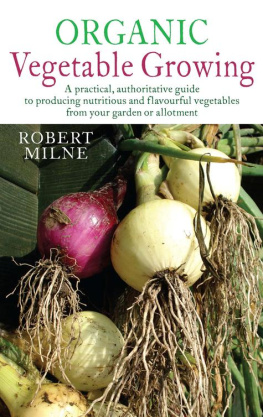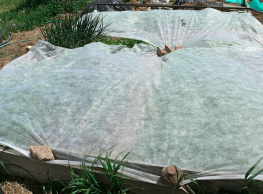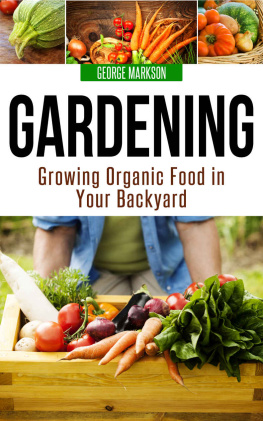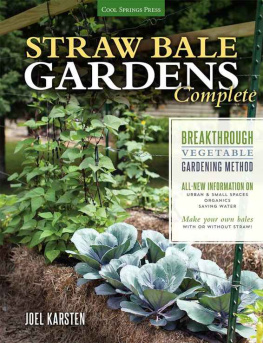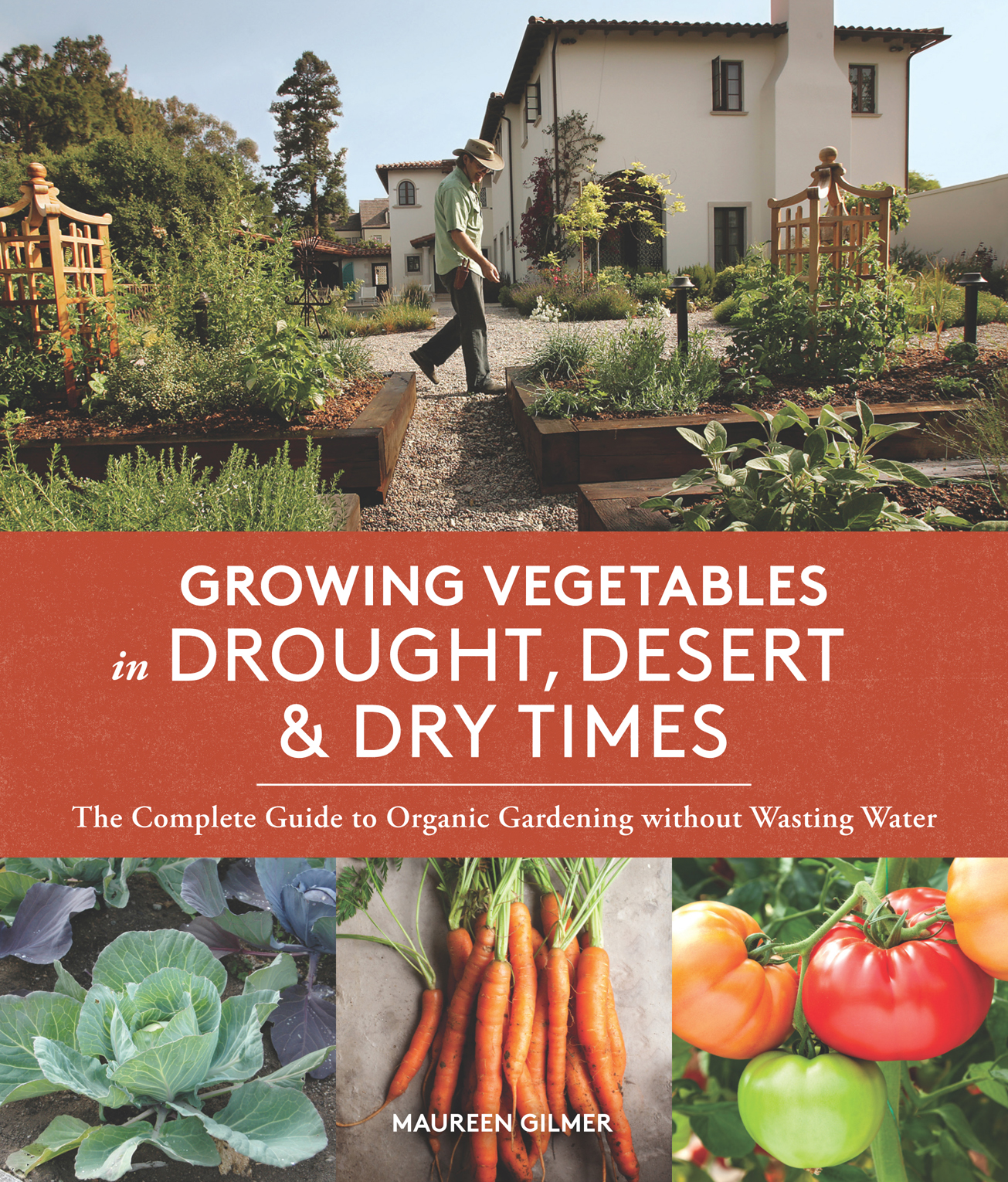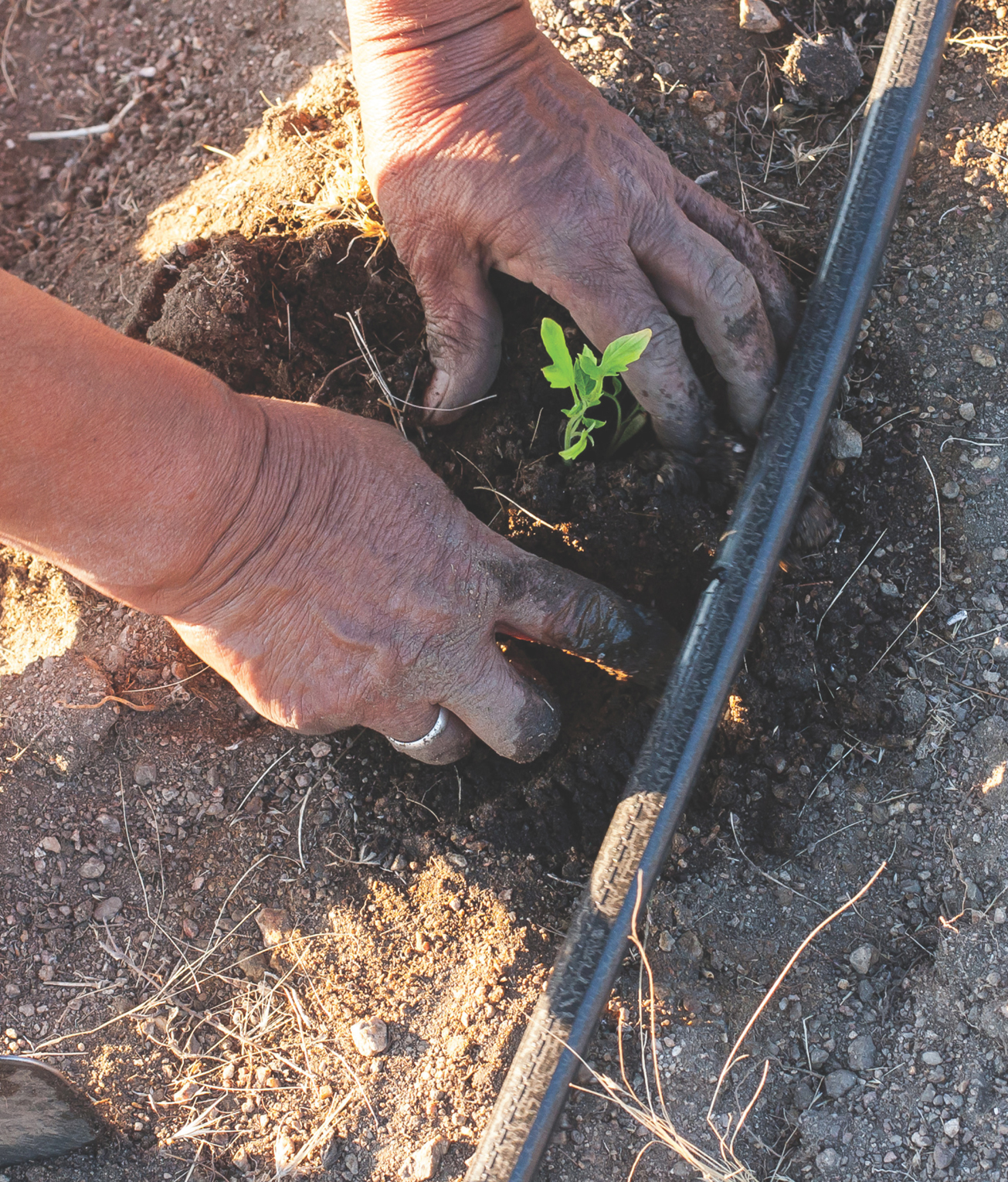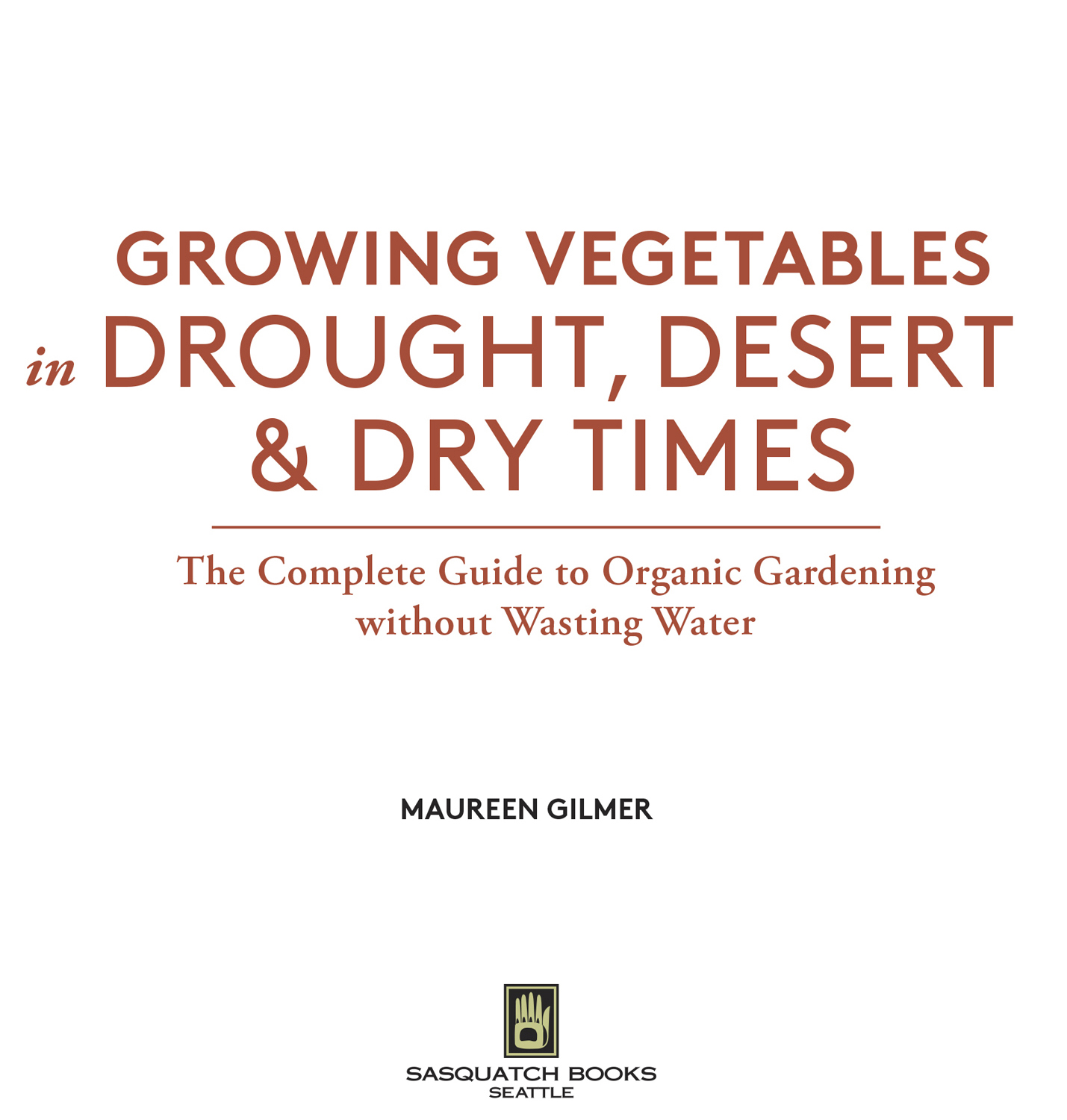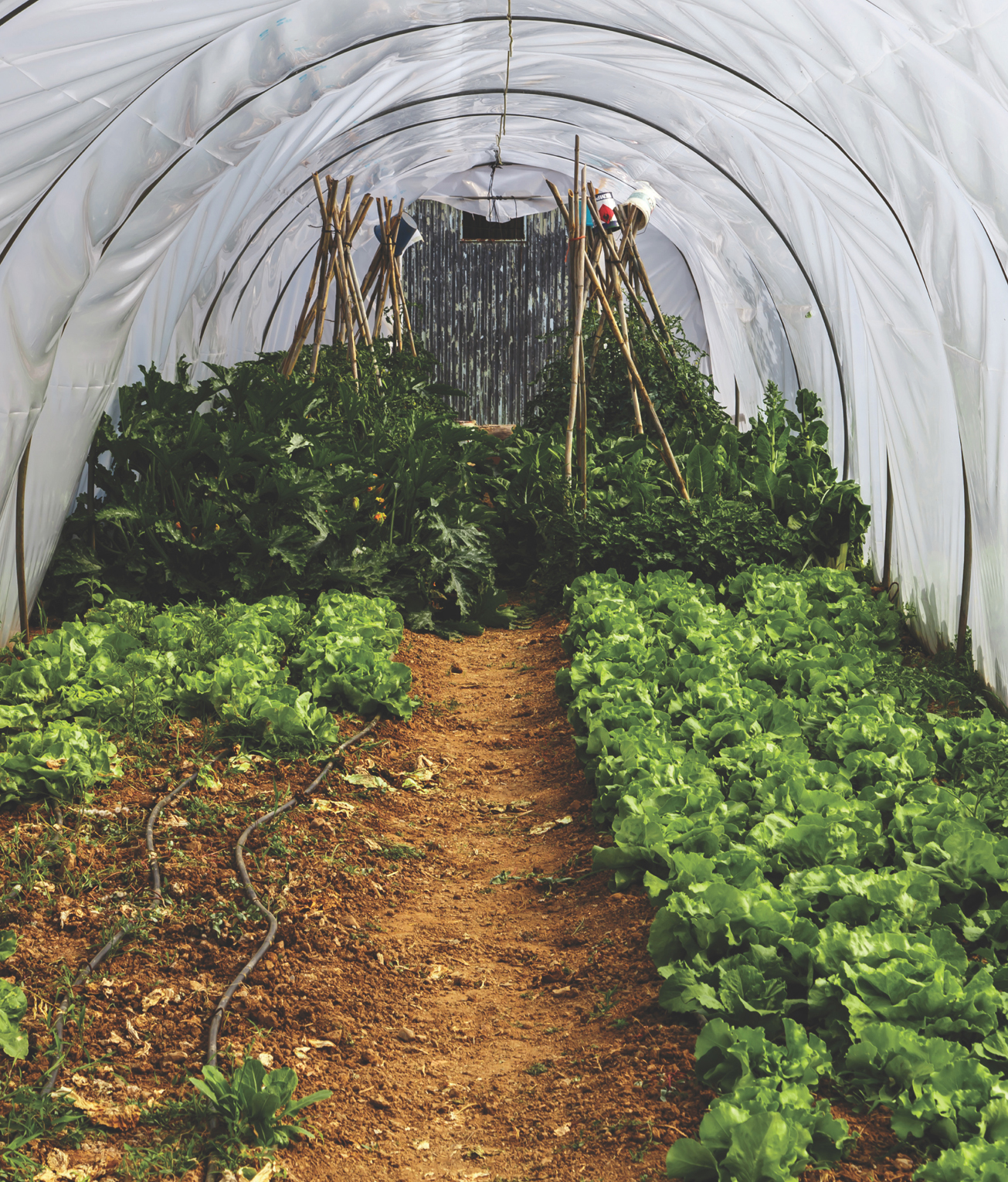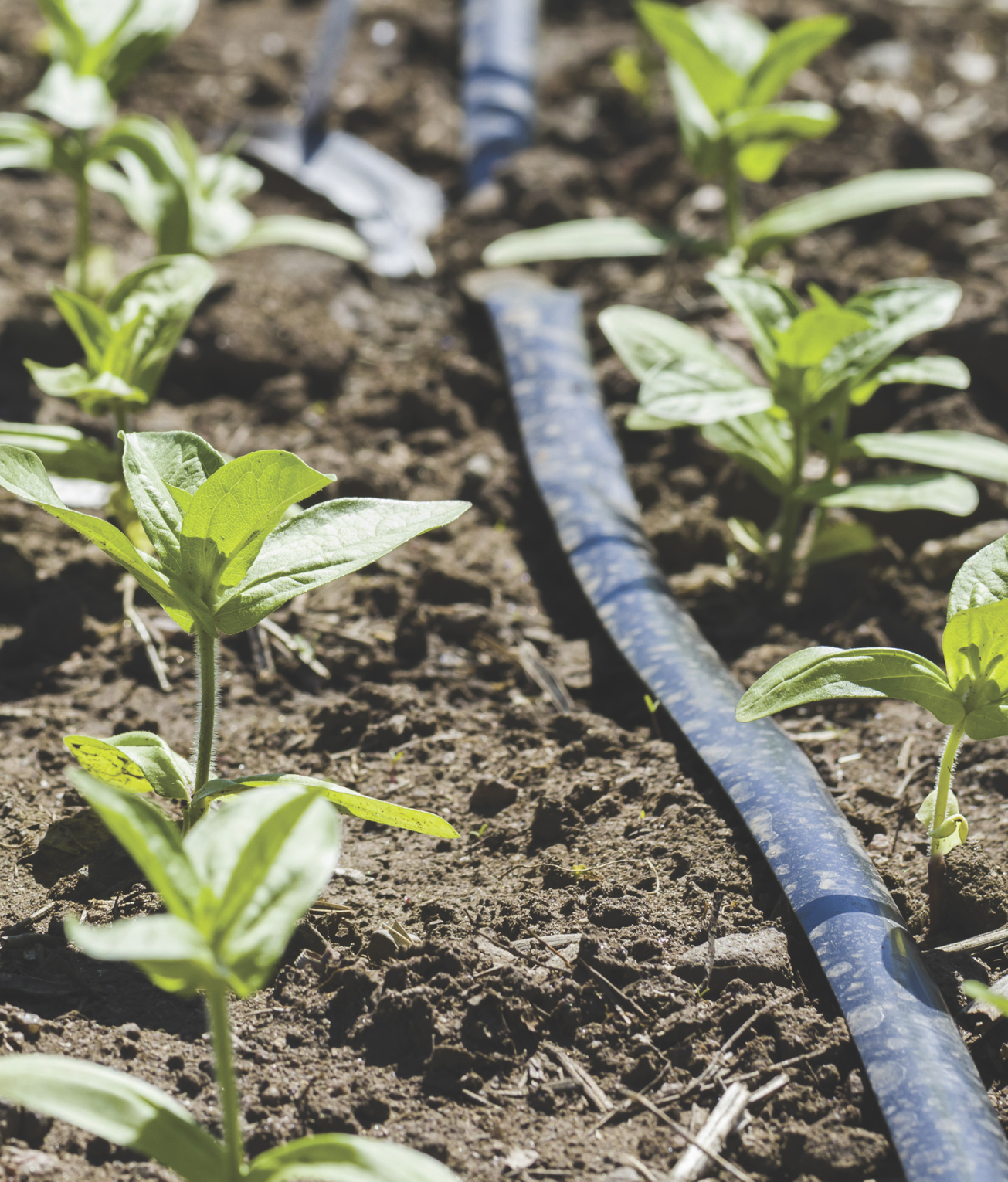ALSO BY MAUREEN GILMER
The Small-Budget Gardener
Palm Springs-Style Gardening
California Wildfire Landscaping
Water Works
Gaining Ground
Copyright 2015 by Maureen Gilmer
All rights reserved. No portion of this book may be reproduced or utilized in any form, or by any electronic, mechanical, or other means, without the prior written permission of the publisher.
Published by Sasquatch Books
Editor: Hannah Elnan
Production editor: Emma Reh
Illustrations: Hannah Small
Trade Paperback design by Joyce Hwang
Copyeditor: Bill Thorness
Al Seib 2008, Los Angeles Times, reprinted with permission (top), Nichola Sarah | moment | carrots | Getty Images (bottom middle), Stock photo | Token Photo | cabbage | istockphoto.com (bottom left), Stock photo | dogayusufdokdok | tomatoes | istockphoto.com (bottom right), Maureen Gilmer (back cover)
Interior photographs:
Tnash7689 | ), Maureen Gilmer (all others)
Library of Congress Cataloging-in-Publication Data is available.
eBook ISBN: 978-1-63217-024-8
Trade Paperback ISBN: 978-1-63217-023-1
Sasquatch Books
1904 Third Avenue, Suite 710
Seattle, WA 98101
(206) 467-4300
www.sasquatchbooks.com
v3.1
To the University of California Master Gardeners, in hopes that this book will help their efforts to educate, inspire, and encourage organic food gardening in an arid land
Contents
Introduction
When the going gets tough, the tough get going. They dont give up. They push the envelope. They dont take no for an answer. And they dont let anyone tell them that drought or water conservation should limit their ability to grow delicious, healthy, organic vegetables. This book is designed to enable you, the average backyard gardener, to overcome the challenges of growing with a minimal water supply. Anyone can do it; you just have to tweak your frame of mind from half empty to half full. These chapters detail just how easy it is when youre enabled by a host of innovative methods that can yield the fresh flavor of success every day of the year.
VEGETABLES: WHY THEYRE DIFFERENT
Its important to know from the get-go, though, that vegetables arent naturally drought-tolerant plants. They evolved over centuries in climates where rainfall and water supplies were ideal for agriculture. Unlike an ornamental landscape that can be replanted with naturally drought-resistant plants or those adapted to local conditions, vegetables are different. Theyre seasonal and short term. They need water to produce large succulent leaves and fruits. Therefore, its important to accept this fact and remember it as you strive to grow more with less water.
FORGET WHAT YOU KNOW
Gardeners often learn their growing methods from parents, who in turn learned them from their own parents, and so on back in time. Those ancestors may have experienced a very different climate with more rainfall. Or perhaps they emigrated from regions with higher rainfall. Others may have learned their techniques where copious irrigation water was available. Today these water-driven growing techniques, such as rows flooded to saturation, are not the best choice for a dwindling supply. In fact, they are based on assumptions that are no longer in keeping with our environment and can lead to some of the greatest water waste.
A NEW NORMAL
To grow food without the guilt of using more water than you need to, its important to open your mind to a new way of growing. This requires you to thoroughly rethink how you look at vegetable plants in your garden. You must learn to accept a new normal that changes the look and feel of the garden in many ways. The old expression form follows function is a slogan of the design community that has always reminded us that how we arrange things should directly link to how well they perform for us. Therefore, growing crops in rows because thats how they are easily irrigated with flood irrigation may no longer apply to our food gardens. Rather than seeing massive quantities of vegetables, we can get used to having fewer, more long-lived individuals that are therefore able to provide more fruits over time.
Tomatoes are ephemerals, but due to varietal differences, their life span or time to harvest can be more variable. For example, common tomatoes, such as Early Girl, are ready to pick in 75 days while Beefsteak requires 95 days. Tomato varieties designated determinate produce their fruits all at once so the fruits can be harvested for canning or sauce. Indeterminate tomatoes produce fruits over a much longer period for fresh eating throughout the growing season.
Knowing this is key to growing tomatoes with minimal water. Otherwise you risk watering a determinate tomato long after it fruits in the mistaken belief it will make new buds, flowers, and fruits later in the season. Once you begin to look at tomatoes and other veggies as variable ephemerals, youll discover far more efficient ways to obtain generous harvests with limited irrigation.
EPHEMERALS
The word ephemeral is defined as anything that lasts for a very short time. Compared to long-lived perennials, vegetable crops are true ephemerals that live during one growing season. Each kind of vegetable has a designated life span, which is typically shown on a seed packet. For example, one of the most ephemeral vegetables is the radish, which is ready to pick just three weeks after sowing if conditions are right.
ANNUALS
The majority of vegetable crops are called annuals, a term that is derived from the Latin root word annus or year. These plants complete their entire life cycle in the span of a single year or, more accurately, a single growing season. All are programmed to hurry up and produce seed before they die with frost in the fall, since this is the way their species survives. This drive to reproduce is a powerful force that lies within our annual vegetable crops.


